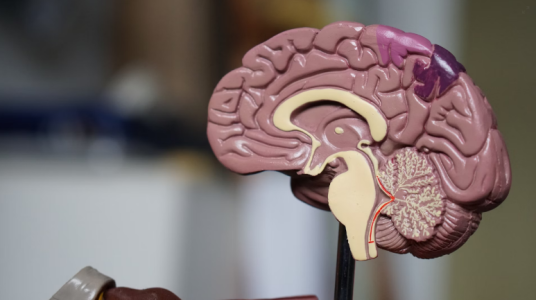Are these strange sensory changes a clue to Dementia? Experts say you shouldn’t ignore them
- Replies 2
It’s easy to think of dementia as a condition defined by memory loss and confusion.
But scientists are now pointing to something even earlier—and far less obvious.
A growing body of research suggests changes in the senses could be warning signs, long before memory problems begin.
If that sounds surprising, you’re not alone.
Dementia is a neurodegenerative condition that causes the brain to gradually shrink and lose function.
But it doesn’t just affect memory—it also impacts how we process information from our senses.
Experts now believe the earliest changes might show up in how we see, hear, taste, and move. These subtle clues can appear many years before a diagnosis.
Professor Andrea Tales of Swansea University, Dr. Emma Richards of Public Health Wales, and Professor Jan Kremláček of Charles University are leading the conversation.
They believe standard memory-focused tests may miss these early red flags.
“Broadening the diagnostic approach beyond memory testing raised the potential to identify dementia at preclinical stages when therapies and life modifications may be most effective,” Kremláček explained.
These scientists are calling for major updates to how dementia is detected.
Some people notice problems with vision disturbances and problems with balance.
Also read: Are you ignoring this common leg issue? It could secretly raise your dementia risk by 25%
A loss of smell, or numbness in the fingers, may also occur. Changes in balance, coordination, or spatial awareness can be part of the picture too.
“Many patients report experiencing these sensory changes years before receiving a diagnosis,” Dr. Richards said. That’s why noticing and acting on them early can be crucial.
According to dementia researcher Molly Murray, younger people with Alzheimer’s often present with these very issues.
“Research shows that for around one third of people with young-onset Alzheimer’s disease, the earliest symptoms they had were problems with coordination and vision changes,” she wrote.
Also read: Is your neighborhood at risk? See the dementia hotspots you need to know about!
This adds to mounting evidence that sensory issues may be more than incidental. For some, they’re the first real sign that something’s wrong.
Dementia is already one of the costliest health issues globally. In the US, it affects around 7 million people, and the emotional toll on families is immeasurable.
Read next: Discover the secret to aging like fine wine: Yoga techniques that boost seniors’ brains and bliss!

Have you noticed unexplained changes in your senses—or seen them in someone else? Could they be part of something bigger? Share your experience in the comments, and help others recognize what might otherwise go unnoticed.
But scientists are now pointing to something even earlier—and far less obvious.
A growing body of research suggests changes in the senses could be warning signs, long before memory problems begin.
If that sounds surprising, you’re not alone.
Dementia is a neurodegenerative condition that causes the brain to gradually shrink and lose function.
But it doesn’t just affect memory—it also impacts how we process information from our senses.
Experts now believe the earliest changes might show up in how we see, hear, taste, and move. These subtle clues can appear many years before a diagnosis.
Professor Andrea Tales of Swansea University, Dr. Emma Richards of Public Health Wales, and Professor Jan Kremláček of Charles University are leading the conversation.
They believe standard memory-focused tests may miss these early red flags.
“Broadening the diagnostic approach beyond memory testing raised the potential to identify dementia at preclinical stages when therapies and life modifications may be most effective,” Kremláček explained.
These scientists are calling for major updates to how dementia is detected.
Some people notice problems with vision disturbances and problems with balance.
Also read: Are you ignoring this common leg issue? It could secretly raise your dementia risk by 25%
A loss of smell, or numbness in the fingers, may also occur. Changes in balance, coordination, or spatial awareness can be part of the picture too.
“Many patients report experiencing these sensory changes years before receiving a diagnosis,” Dr. Richards said. That’s why noticing and acting on them early can be crucial.
According to dementia researcher Molly Murray, younger people with Alzheimer’s often present with these very issues.
“Research shows that for around one third of people with young-onset Alzheimer’s disease, the earliest symptoms they had were problems with coordination and vision changes,” she wrote.
Also read: Is your neighborhood at risk? See the dementia hotspots you need to know about!
This adds to mounting evidence that sensory issues may be more than incidental. For some, they’re the first real sign that something’s wrong.
Dementia is already one of the costliest health issues globally. In the US, it affects around 7 million people, and the emotional toll on families is immeasurable.
Read next: Discover the secret to aging like fine wine: Yoga techniques that boost seniors’ brains and bliss!
Key Takeaways
- Scientists say changes in sight, smell, taste, touch, hearing, and balance may signal dementia years before memory issues arise.
- Sensory symptoms are often mistaken for normal aging, delaying diagnosis.
- Experts call for these signs to be included in standard dementia assessments.
- Early detection allows for better treatment, planning, and emotional support.







